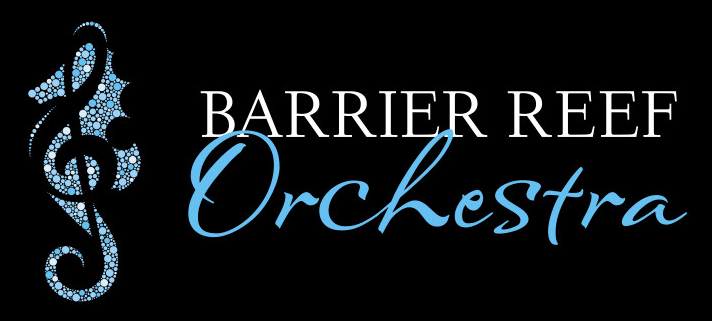Review: Orchestral Odyssey on 15th March 2025
DIVERSE JOURNEY SPANS CLASSICAL MUSIC EPOCH
Review by Trevor Keeling in the Townsville Bulletin
From the mythological underworld of what is regarded as the very first opera to the lampooning of that same Greek legend, conductor PeterMorris took us on an interesting and diverse journey.
Beginning in 1607 and ending in 2010, the program traversed music spanning 500 years in this first concert of the year by the recently renamed Great Barrier Reef Orchestra.
Entitled Orchestral Odyssey, the performance was under the direction of Brisbane-based Morris, who created a friendly and genial atmosphere of bonhomie for this performance, which began with the Overture from Claudio Monteverdi’s L’Orfeo (1607). Generally recognised as the very first opera, the piece began with a bold fanfare from the brass and percussion section, innovatively positioned behind the audience at the back of the theatre. This certainly had significant wow factor, but unfortunately the balance of sound meant that when the entire orchestra was playing together the brass section drowned the orchestra on stage.
Considered one of the pinnacles in piano concerto repertoire, the second piece on the program was Beethoven’s oft-performed Piano Concerto No.4, written in 1807. This demanding piece featured Sydney-based pianist Nicholas Kennedy, who won the 2023 Australian Concerto and Vocal competition with another Beethoven opus, Concerto No. 1, also known as the Emperor Concerto.
With its intricate cadenzas, which allows for significant virtuosic display,Kennedy brought a delicate accuracy and multi-textured quality to his interpretation of the concerto, drawing considerable applause from the large appreciative audience.
Written in 1842 as an accompaniment to his 1826 overture, Felix Mendelssohn’s Incidental Music from A Midsummer Night’s Dream is a favourite concert piece. The much-loved Wedding March was a highlight, with the music creatively interspersed with extracts from Puck’s speeches from the Shakespearean text, delivered with confident clarity by TheatreiNQ actor, Michael Gleeson.
Gleeson also featured text from the Bard’s Romeo and Juliet to introduce the dramatic Montagues and Capulets from Sergei Prokofiev’s ballet of the same name, which premiered in Soviet Russia in 1940. This dramatic piece is arguably the composer’s most well-known work and the orchestra certainly did it justice.
A symphonic suite from John Powell’s Oscar-nominated score of the animated film How to Train Your Dragon (2010) was the final feature on the program. This blend of Celtic and orchestral influences was a delightful end to the program.
It is always interesting for an orchestra to feature scores from films, which are the only opportunities contemporary composers have to develop the classical music genre.
The performance ended with an encore of the Can-Can from Offenbach’s Orpheus in the Underworld, a lighthearted and familiar end to a program of light and diverse classics.

